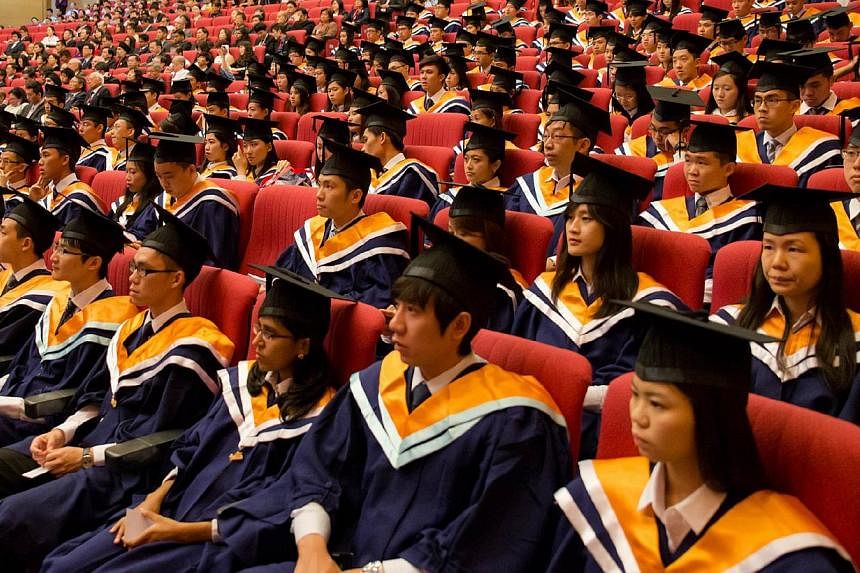More undergraduates are taking up double degrees and majors outside their disciplines, in a bid to broaden their knowledge and become more employable.
The trend has emerged as universities continue to expand their offerings to include more programmes, allowing students to graduate with two degrees in different fields.
Students say the extra time spent on more modules makes them more versatile in the job market, giving them an edge over others with only one speciality. Such programmes tend to attract brighter students.
Singapore Management University (SMU) vice-provost (undergraduate) Pang Yang Hoong said that about 70 per cent of its cohort graduate with a second major or double degree. The figure was 20 per cent to 30 per cent four years ago, she said.
Professor Pang is also dean of SMU's school of accountancy, which has the largest number of double degree students. A third of its cohort complete double degrees, compared with about 10 per cent university-wide.
Last year, about 340 National University of Singapore (NUS) undergraduates completed a double degree or second major, compared with about 150 in 2010.
Among those who opted for second majors across NUS, SMU and Nanyang Technological University (NTU), 40 per cent to 50 per cent chose a field with a different faculty or school.
At NTU, 4 per cent to 5 per cent of its full-time 6,000 undergraduate cohorts enrolled in double degree programmes over the last five years. About 240 students are taking a second major.
Students like Ms Phua Yanqi, 23, who graduated from SMU this year, take up double degrees to figure out areas of interest.
Ms Phua, who did a double degree in accountancy and economics, said: "In year one I wasn't sure what I wanted to do. I was interested in accountancy, but I thought I could also do things like research or be an economist.
"Through economics, I learnt how the economy works and how the financial crisis happened." She starts work as an auditor this month.
NUS student Wang Chen Yan, 20, said her double degree in law and life sciences offers her the best of both worlds, as she is interested in both areas.
Universities are giving students more choices in customising their curriculum, with more specialisations and initiatives.
For instance, NTU's list of second majors grew in the last five years, from nine to the current 16. Its latest additions this year are food science and technology, and chemical biology.
NUS students can choose from 28 second majors; at SMU it is 42 second majors, up from 30 two years ago. Both NTU and SMU have 15 double degree combinations while NUS has 45.
An NUS spokesman said multidisciplinary learning is a big part of its undergraduate education, as having a "broad-based education" helps to develop students' critical and creative thinking skills. NTU senior associate provost (undergraduate education) Kam Chan Hin said that bringing together two disciplines broadens students' study options and widens their career choices.
But some human resources experts said having a double degree does not necessarily mean "double insurance" in the job market.
"At the end of the day, you still have to choose one job and you're still considered a fresh graduate," said PeopleWorldwide managing director David Leong. "It's still a credential, a one-liner on your resume."
Singapore Human Resources Institute chief Erman Tan said employers may pay double degree holders 5 per cent to 10 per cent more if both fields they specialise in are relevant to the job. "But most times, they'll be paid the same as a single-degree graduate, as employers may not think the training is all that relevant."


